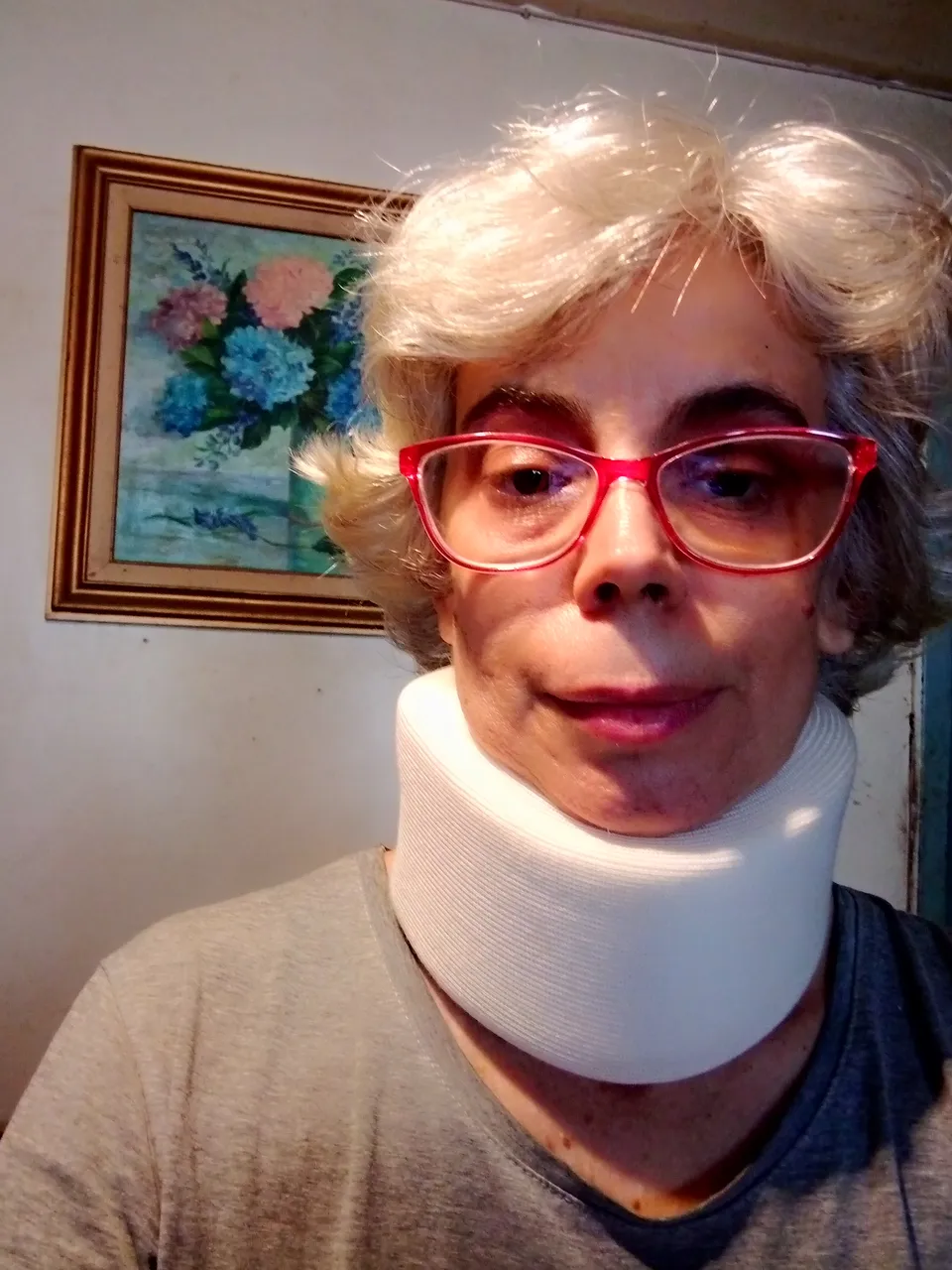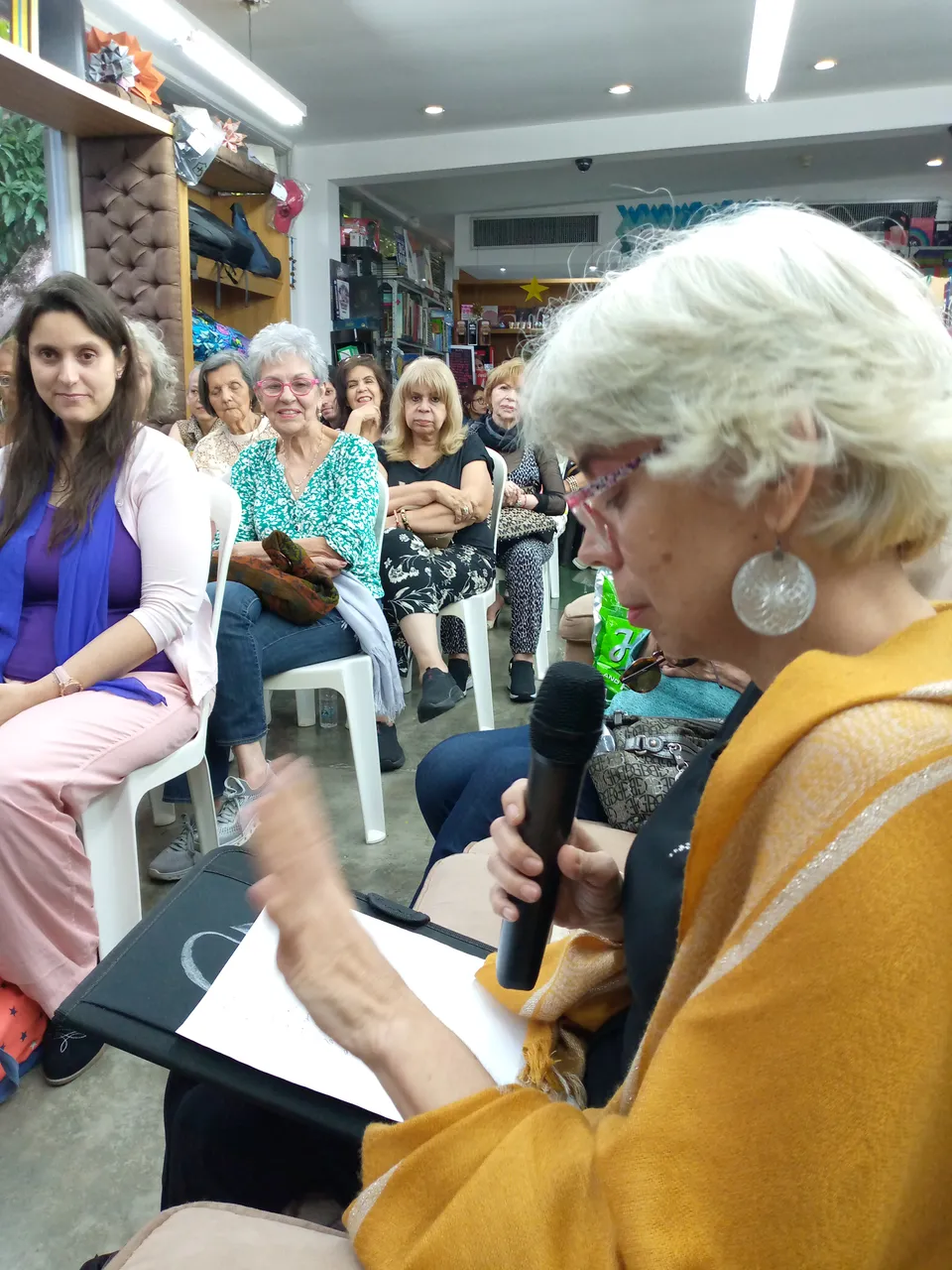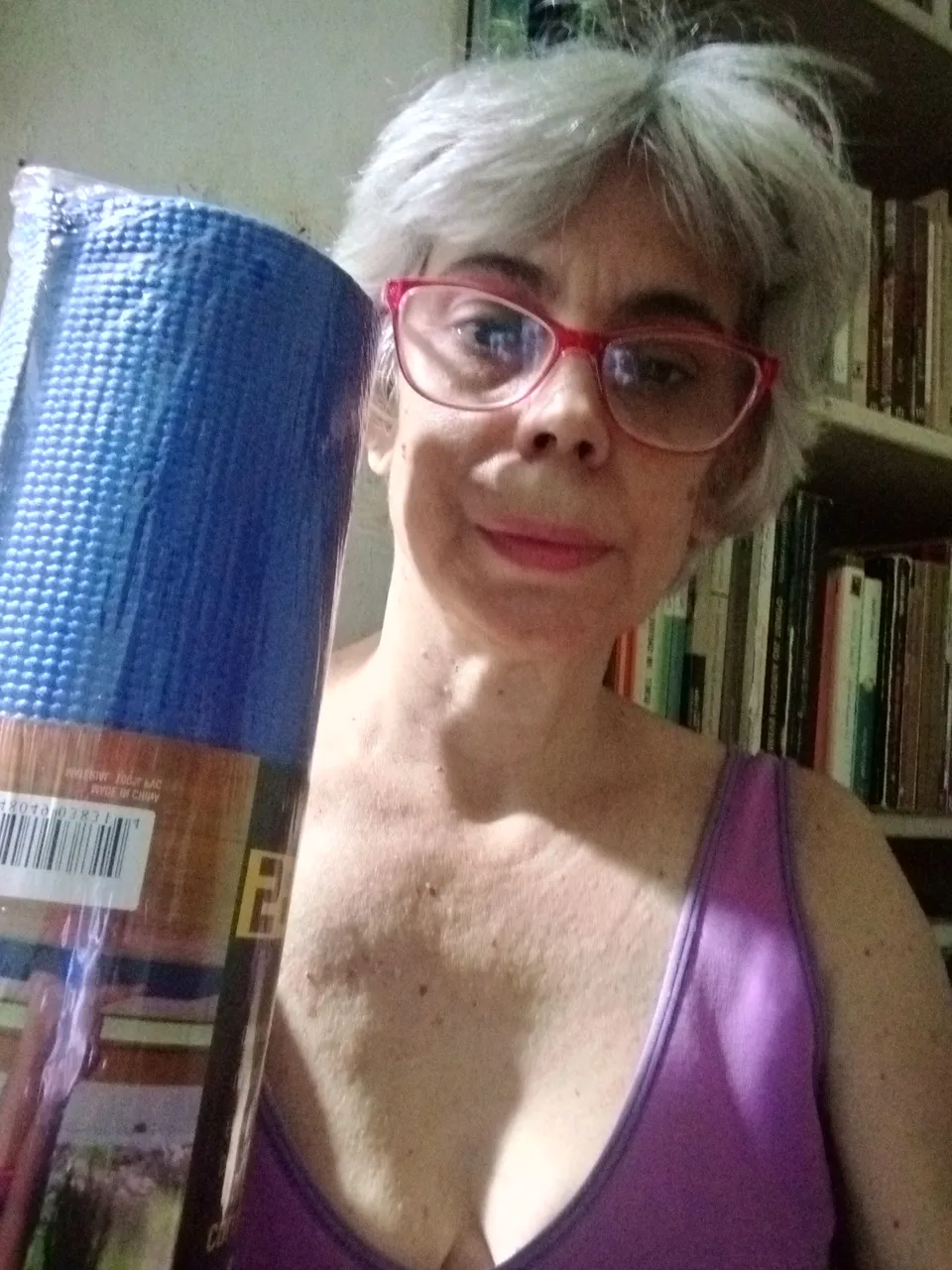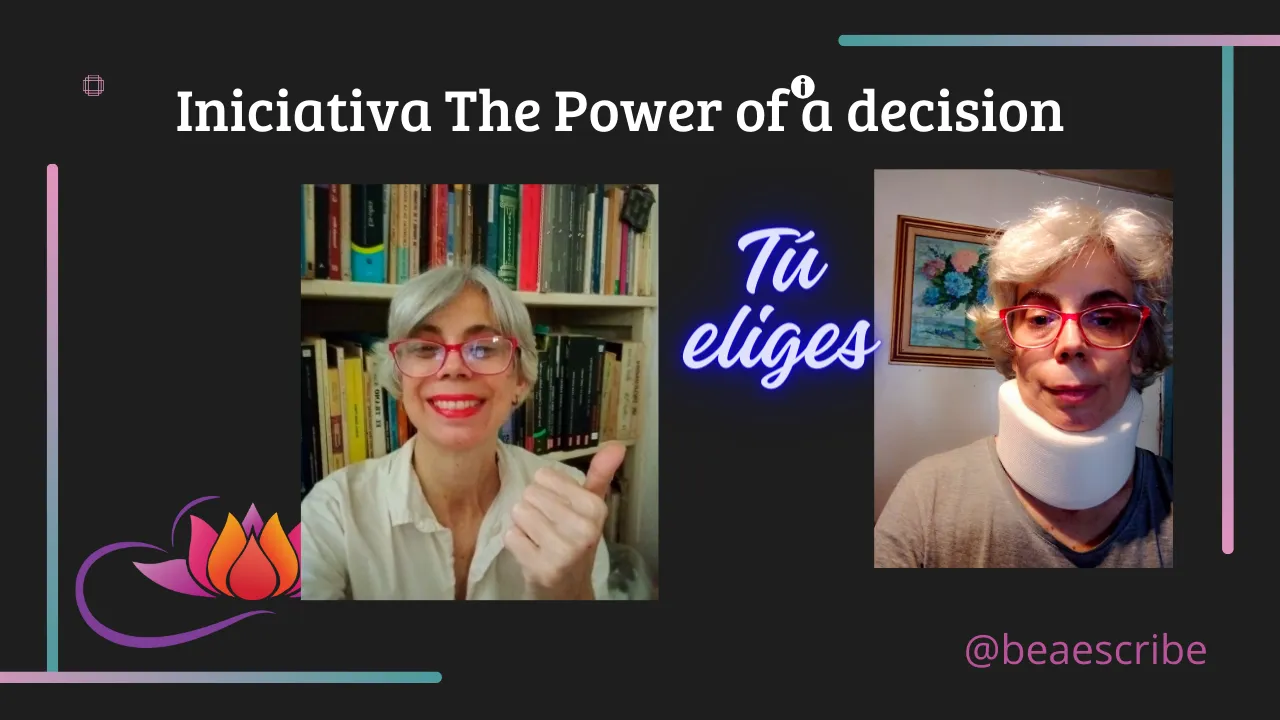Desde que tenemos uso de razón empezamos a tomar decisiones. Cuando somos niños nuestro poder de decidir es limitado y en buena medida los adultos que nos rodean, nuestros padres especialmente, o quien cuida de nosotros, controla nuestro poder de decisión; pero ya entonces nuestra personalidad, nuestro carácter, determinan de que manera reaccionamos frente a lo que nos toca vivir. En la medida en que crecemos y nos hacemos adultos aumenta nuestra capacidad de decisión y debemos asumir las consecuencias de nuestras decisiones. Nadie, salvo nosotros mismos, es responsable de nuestro éxito o fracaso, nuestra felicidad o infelicidad.
Culpar a otros por las consecuencias de tus decisiones me parece que es un signo de inmadurez. Si tú aceptas estar en un lugar donde te maltratan, en un lugar donde no te valoran, en un lugar que te causa malestar o sufrimiento, sea tu casa familiar, o sea tu lugar de trabajo, ya eres adulto, y no buscas la manera de cambiar la situación o de irte, no puedes culpar a ninguna de las personas que te rodean de tu infelicidad o de tu fracaso. Muchas veces los factores externos negativos son una oportunidad para crecer, para transformarte, pero si eliges no hacer nada, si eliges quedarte en la comodidad de la víctima. ¿De quién es la culpa?
No debemos aceptar ningún tipo de violencia
Cuando somos niños no tenemos la capacidad de decidir, dependemos de las decisiones que toman los adultos que nos rodean. En mi infancia viví en un ambiente familiar tóxico, donde había violencia familiar, violencia física y psicológica. Cuando ya era adolescente, poco tiempo después de un episodio de violencia física injustificado, en el que mi padre me golpeó de manera violenta porque llegué algo tarde, le había avisado a una de mis hermanas y a ella se le olvidó decírselo, me fui de casa, alquilé una habitación. Ya yo estaba trabajando. NInguna de mis hermanas lo había hecho, irse de la casa.

Años después, que tuve que volver a la casa familiar por perder el empleo que tenía, una de mis hermanas por una discusión que tuvimos, me agredió violentamente. Volví a irme de la casa familiar apenas logré nuevamente una estabilidad económica. Infelizmente, en los hogares donde hay violencia, los hijos tienden a repetir las conductas de los padres, la psicodinámica familiar. Yo no fui a un hospital, quizá sencillamente tomé algún analgésico. Y al parecer un problema que tengo en este momento en el área cervical está vinculado a ese episodio, porque ella me haló por la cabeza. Uno no debe permanecer en un espacio en el que te agreden, puedes terminar en una morgue. Mi padre, que aún vivía, detuvo a mi hermana. No sé qué hubiera podido pasar si él no hubiese estado allí. A continuación responderé algunas de las preguntas que @luzscarllet18 propuso en su iniciativa.
¿Qué aspectos consideras al tomar una decisión?
Lo ideal cuando tomas una decisión es reflexionar primero sobre los pro y los contras, las consecuencias de esa decisión en tu vida y de qué manera puede afectar a las personas que te rodean. Pero con frecuencia nos dejamos llevar por las emociones. Por eso a veces es bueno esperar que la emoción pase antes de tomar una decisión, o conversar con personas de confianza que nos ayuden a ver la situación con otra perspectiva. Pero con la fortaleza que nos da confiar en nosotros mismos y en nuestra capacidad de resolver los problemas que se nos puedan presentar.
¿Te has arrepentido de haber tomado una opción por encima de otra?
Elegir una opción cuando te encuentras en una disyuntiva, conlleva descartar la otra. Cuando terminé el bachillerato estaba indecisa sobre qué quería estudiar, tenía interés en la psicología, pero amaba los libros y la literatura. Entonces mi profesor de Literatura me sugirió ir a la Escuela de Letras de la Universidad Central de Venezuela, donde él había estudiado, permitían entrar en las clases a personas que aún no estaban inscritas, consultando previamente al profesor que dictaba la materia. Así lo hice y disfruté mucho las clases y el ambiente, entonces tomé la decisión de estudiar literatura y dedicarme al mundo de los libros y la literatura, a pesar de que diversas personas me dijeron que era una carrera que no era lucrativa. Más de treinta años después no puedo imaginarme dedicándome a otra cosa.

Recital poético
De igual manera, desde muy joven descarté la idea de ser madre. Una tía con la que viví un tiempo, cuando me fui de la casa de mis padres, me dijo que sentiría el deseo de ser madre más adelante. Pero no fue así. Quizá porque en aquellos días de mi juventud no me enamoré, no logré tener una relación de pareja estable que me hubiese hecho cambiar de opinión.
¿Qué tanto influyen los consejos de tus seres queridos al momento de decidir sobre la solución de un problema?
Honestamente, siempre he sido una persona independiente, me gusta ir a mi aire, tomar mis propias decisiones. No he sido una persona que le guste pedir consejo. Y usualmente he tenido que asumir las consecuencias de mis decisiones. Especialmente haber elegido una carrera artística, literaria, me ha llevado, como me habían dicho, a una vida precaria económicamente. No puedo culpar a nadie de ello, más que a mí misma. Pero seguí mi ikigai, he entregado mi vida a las actividades que más amaba, leer y escribir, y a apoyar a otras personas que también han elegido mi vocación, a través de la docencia y la asesoría editorial. Por eso hoy, a pesar de las dificultades, la mayor parte del tiempo me siento feliz, porque la felicidad tiene que ver con eso, con asumir de la mejor manera las consecuencias de tus decisiones y sentirte en paz.
Buenos y malos hábitos
Quisiera cerrar esta reflexión agregando un tema que me parece importante, porque afecta nuestra vida, pero no lo tomamos en cuenta, especialmente cuando somos jóvenes: el cuidado de la salud. Nuestro bienestar depende en gran medida de nuestra salud. Un estilo de vida saludable es una decisión. Comer de una manera saludable, hacer ejercicio, tener rutinas que nos ayuden a bajar nuestros niveles de estrés. Tener malos hábitos también es una decisión. Comer en exceso o comer de una manera poco saludable, tener vicios como fumar, beber en exceso, tener una vida sedentaria. Quedarnos pegados en las emociones negativas con frecuencia, también es una decisión que afecta nuestra salud. Quedarnos pegados en la rabia, la frustración, la tristeza, también es un mal hábito. Viví con estos malos hábitos muchos años. La terapia psicológica, pero sobre todo la meditación, me ayudaron a fortalecerme interiormente y salir de allí. Pero tomé la decisión, decidí quererme, confiar más en mí, transformarme en una persona más sana física y espiritualmente.

Con mi nuevo mat de yoga

THE POWER OF A DECISION
First of all I would like to thank @luzscarllet18 for the initiative "The power of a decision" (https://ecency.com/hive-131951/@luzscarllet18/the-power-of-a-decision-oror-initiative-proposal-esp-eng.) It seems to me a very interesting topic to reflect on. Life offers us infinite possibilities. But these infinite possibilities are conditioned by many contextual factors and many other internal factors. Sometimes we have to accept, for example, that there are some contextual factors that we do not decide, such as where I was born, in which country, in which family context. There are other factors that we cannot control, such as what others think, do or don't do. And something that I have ended up understanding is that what I can control is my reaction and my attitude towards what happens to me.
You choose
From the time we have the use of reason we begin to make decisions. When we are children our power to decide is limited and to a large extent the adults around us, especially our parents, or those who take care of us, control our power of decision; but already then our personality, our character, determine the way we react to what we have to live. As we grow up and become adults, our decision-making capacity increases and we must assume the consequences of our decisions. No one, except ourselves, is responsible for our success or failure, our happiness or unhappiness.
Blaming others for the consequences of your decisions seems to me to be a sign of immaturity. If you accept being in a place where you are mistreated, in a place where you are not valued, in a place that causes you discomfort or suffering, whether it is your family home or your workplace, you are already an adult, and you do not look for a way to change the situation or to leave, you cannot blame any of the people around you for your unhappiness or your failure. Many times negative external factors are an opportunity to grow, to transform yourself, but if you choose to do nothing, if you choose to stay in the comfort of the victim, whose fault is it?
We must not accept any kind of violence
When we are children we do not have the capacity to decide, we depend on the decisions made by the adults around us. In my childhood I lived in a toxic family environment, where there was family violence, physical and psychological violence. When I was already a teenager, shortly after an episode of unjustified physical violence, in which my father hit me violently because I was a little late, I had warned one of my sisters and she forgot to tell him, I left home, I rented a room. I was already working. None of my sisters had ever done that, left the house.

Years later, when I had to return to the family home because I lost my job, one of my sisters violently assaulted me because of an argument we had. I left the family home again as soon as I achieved economic stability. Unfortunately, in homes where there is violence, children tend to repeat the behavior of their parents, the family psychodynamics. I did not go to a hospital, maybe I simply took some painkillers. And apparently a problem I have at the moment in the cervical area is linked to that episode, because she pulled me by the head. One should not stay in a space where you are assaulted, you can end up in a morgue. My father, who was still alive, arrested my sister. I don't know what would have happened if he hadn't been there. Below I will answer some of the questions that @luzscarllet18 proposed in her initiative.
What aspects do you consider when making a decision?
Ideally, when you make a decision, you should first think about the pros and cons, the consequences of that decision in your life and how it may affect the people around you. But we often get carried away by emotions. That is why sometimes it is good to wait for the emotion to pass before making a decision, or to talk to people we trust to help us see the situation from a different perspective. But with the strength that gives us confidence in ourselves and in our ability to solve the problems that may arise.
Have you regretted making one choice over another?
Choosing one option when you find yourself in a dilemma, entails discarding the other. When I finished high school I was undecided about what I wanted to study, I was interested in psychology, but I loved books and literature. Then my literature professor suggested me to go to the School of Letters of the Central University of Venezuela, where he had studied and allowed me to enter the classes without being enrolled. So I did and I liked the classes, then I made the decision to study literature and dedicate myself to the world of books and literature, even though several people told me that it was a career that was not lucrative. More than thirty years later I can't imagine dedicating myself to anything else.

Poetry reading
Similarly, from a very young age I dismissed the idea of being a mother. An aunt with whom I lived for a while, when I left my parents' house, told me that I would feel the desire to be a mother later on. But I didn't. Perhaps because in those days of my youth I did not fall in love, I did not manage to have a stable relationship that would have made me change my mind.
How much influence do the advice of your loved ones have when deciding on a solution to a problem?
Honestly, I have always been an independent person, I like to go my own way, make my own decisions. I have not been a person who likes to ask for advice. Therefore, I have usually had to take the consequences of my decisions. Especially having chosen an artistic, literary career has led me, as I had been told, to a financially precarious life. I can't blame anyone for that, but myself. But I followed my ikigai, I have devoted my life to the activities I loved most, reading and writing, and to supporting other people who have also chosen my vocation, through teaching and editorial consulting. That is why today, despite the difficulties, most of the time I feel happy, because happiness has to do with that, with assuming in the best way the consequences of your decisions and feeling at peace.
Good and bad habits
I would like to close this reflection by adding a topic that seems important to me, because it affects our lives, but we do not take it into account, especially when we are young: health care. Our well-being depends to a great extent on our health. A healthy lifestyle is a decision. Eating in a healthy way, exercising, having routines that help us lower our stress levels. Having bad habits is also a decision. Overeating or eating in an unhealthy way, having vices such as smoking, excessive drinking, having a sedentary lifestyle. Getting stuck in negative emotions frequently is also a decision that affects our health. Getting stuck in anger, frustration, sadness, is also a bad habit. I lived with these bad habits for many years. Psychological therapy, but above all meditation, helped me to strengthen myself internally and get out of it. But I made the decision, I decided to love myself, to trust myself more, to transform myself into a physically and spiritually healthier person.

with my new yoga mat
The images you see were taken with my cell phone camera.
Translated with DeepL.com (free version)









